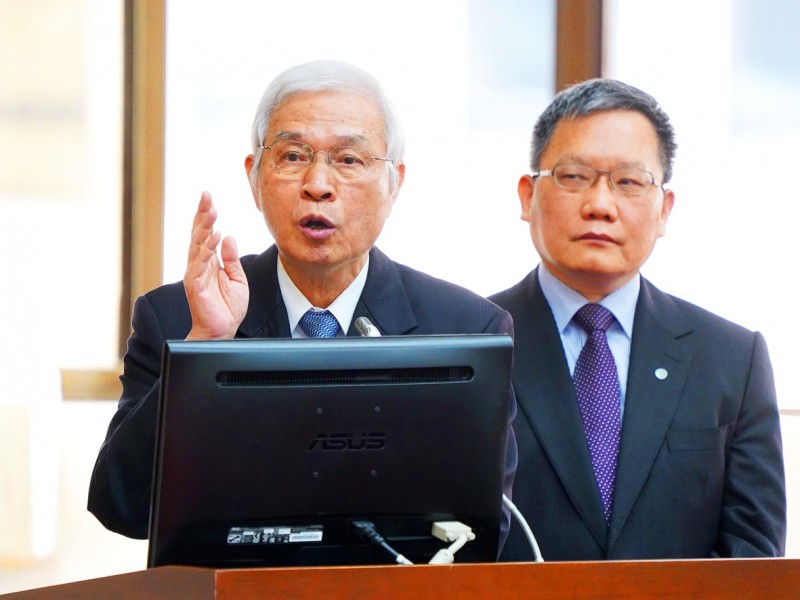《TAIPEI TIMES》Taiwan has maneuvering room: Yang

Central bank Governor Yang Chin-long, left, speaks at the Legislative Yuan in Taipei yesterday as Minister of Finance Su Jain-rong looks on. Photo: CNA
REASSURING LAWMAKERS: The central bank does not see the need for the kind of aggressive measures that some of its peers have taken, Governor Yang Chin-long said
By Crystal Hsu / Staff reporter
Taiwan will not use negative interest rates or quantitative easing to mitigate the impact of the COVID-19 pandemic, as there is still room for interest rate cuts if necessary, central bank Governor Yang Chin-long (楊金龍) told lawmakers in Taipei yesterday.
Lawmakers across party lines voiced concern at a meeting of the Finance Committee on the impact of COVID-19 that the central bank’s actions to reduce the potential economic fallout of the pandemic appear modest compared with its peers around the world.
“There is still room for rate cuts if the coronavirus crisis wreaks a heavier havoc, but there will not be zero or negative interest rates,” Yang said.
Consumer prices, financial stability and the nation’s economic showing would guide the bank’s decisions, he said.
The central bank on March 19 cut interest rates by 0.25 percentage points to a record low of 1.125 percent, and announced an injection of NT$200 billion (US$6.61 billion) into the system to ease the financial burden on households and companies from the pandemic.
Lawmakers said that other central banks are taking more aggressive measures to stave off a credit crunch, citing the US Federal Reserve’s 125 basis point rate cut, and unlimited purchases of government and corporate debt as one example.
Yang said the situation in Taiwan is different from that of the US and requires different measures in response.
Quantitative easing is helpful in boosting market confidence and averting a liquidity squeeze, as seen during the global financial crisis of 2008, but large Taiwanese corporations have ample liquidity, making debt purchases unwarranted, he said.
However, travel and quarantine restrictions due to the pandemic have hit service industries hard, while electronics firms are in danger of supply chain disruptions, he said.
This is why the central bank is seeking to channel relief money to small and medium-sized enterprises that are under strain, Yang said.
Yang said that he had personally pleaded with local banks to provide loans at preferential interest rates to affected companies.
Not having to face a cash crunch means companies would be less inclined to lay off employees, thereby putting them in financial difficulties, he said.
The central bank would continue to closely monitor the situation and would expand the size of funding, if necessary, he said.
Yang said that he is confident the pandemic would not create a financial crisis in Taiwan even if it persists beyond the first half of the year, but added that he is less confident about other countries’ financial health.
新聞來源:TAIPEI TIMES












